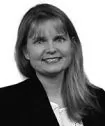Representatives of the British Medical Association (BMA) met recently to discuss the possibility of allowing employees to take up to 14 days’ sick leave from work without a doctor’s note. Currently, workers suffering from a common ailment, such as flu or a sprained ankle, can sign themselves off work and are not required to obtain a fit note from a doctor until after seven calendar days’ absence.
At the BMA Annual Representatives meeting, doctors voted overwhelmingly for the extension of self-certification from seven to 14 days. They also voted for a change in legislation to allow other health care professionals such as midwives and nurse practitioners to complete fit notes for patients.
There is much support for this new proposal with many clinical professionals stating that employees should be trusted as they find them to be honest about short-term sickness. Others argue that this extension from seven to 14 days has merit as it will relieve the increasing workload of medical professionals and improve the service for other patients who are in greater need of doctors’ appointments.
However, Paul Foster, the regional development manager for the Federation of Small Businesses in Cumbria and Lancashire states that “the average rate of sickness absence in the UK was found to be 9.1 days a year at a total cost of £28 billion.” Therefore, there are concerns that allowing employees to extend the period of self-certified sickness absence could see this rate substantially increase with many employees abusing the system to “pull a sickie”. Other commentators worry that the potential rise in absence may adversely affect employers who may be burdened with excessive payments of sick pay where it is not truly warranted. Employers can manage this risk by amending sickness pay policies to safeguard against employees taking unfair advantage of the extension.
Recent reports suggest there are 150,000 more people demanding appointments than seven years ago, yet the number of available doctors has not increased to meet this demand. It is this issue with capacity that is the real driving force behind the BMA’s proposal.
Despite this amendment, there is nothing to stop an employer from challenging what the employee has said or from requesting that an employee has an examination with an occupational health consultant. As discussed in our blog post on 29 March (“Pulling a sickie”), where an employee “pulls a sickie” when not actually ill, this may amount to dishonesty and a fundamental breach of trust and confidence. Therefore, any false declaration under both the existing and proposed self-certification system could amount to gross misconduct and lead to dismissal. Consequently, employers should remind their employees of the serious repercussions that can result from untruthful absence from work and dishonestly claiming sick pay.
Dentons is the world's first polycentric global law firm. A top 20 firm on the Acritas 2015 Global Elite Brand Index, the Firm is committed to challenging the status quo in delivering consistent and uncompromising quality and value in new and inventive ways. Driven to provide clients a competitive edge, and connected to the communities where its clients want to do business, Dentons knows that understanding local cultures is crucial to successfully completing a deal, resolving a dispute or solving a business challenge. Now the world's largest law firm, Dentons' global team builds agile, tailored solutions to meet the local, national and global needs of private and public clients of any size in more than 125 locations serving 50-plus countries. www.dentons.com.
The content of this article is intended to provide a general guide to the subject matter. Specialist advice should be sought about your specific circumstances.

